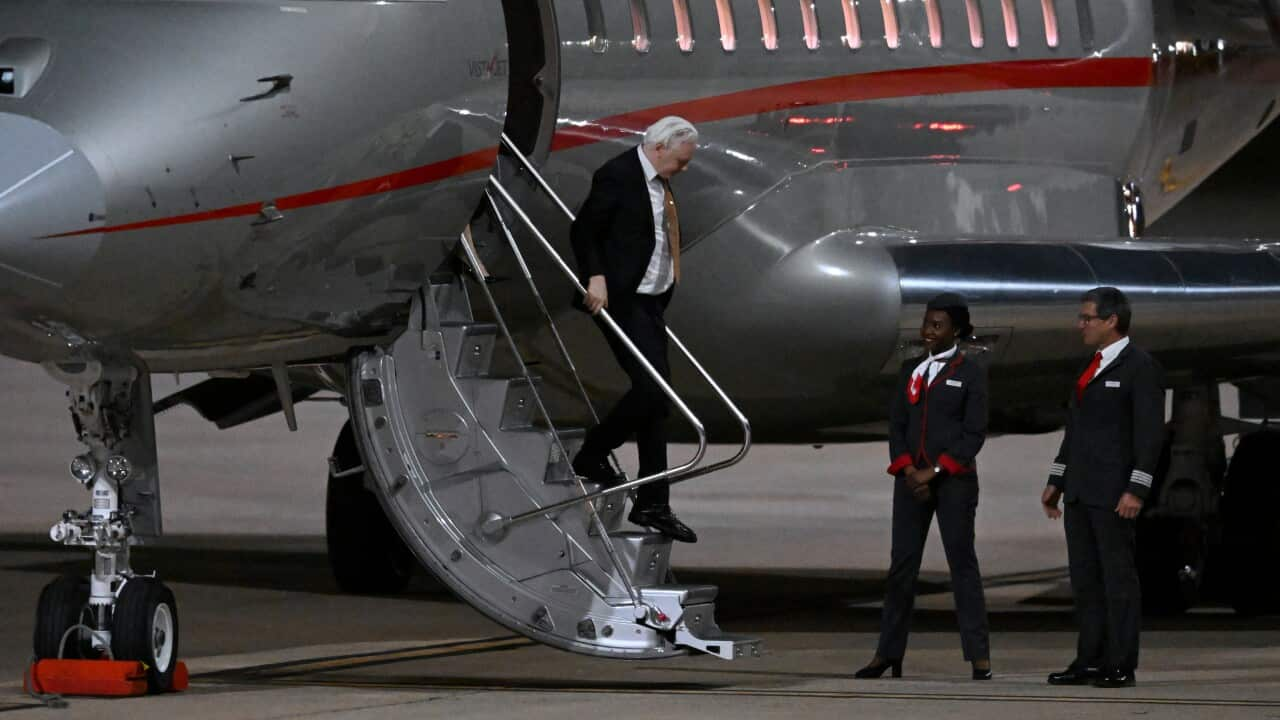Key Points
- WikiLeaks founder Julian Assange was released from custody in June after pleading guilty to one espionage charge.
- It has been revealed his trip back to Australia cost more than $781,480.
- A foundation has agreed to pay most of the costs, but Australian taxpayers will still face a bill of about $100,000.
Julian Assange’s trip back to Australia cost more than $781,000, but a private organisation has agreed to pay most of the bill.
The charter flight cost $781,480, according to documents tabled in the Senate.
That expense will be reimbursed by the Germany-based Wau Holland Foundation, but about $100,000 will be charged to the public purse for travel expenses for Australia’s United States Ambassador, Kevin Rudd, UK High Commissioner Stephen Smith, and “other associated Department of Foreign Affairs and Trade costs”.
The WikiLeaks founder returned to Australia in June after 12 years of confinement — — as the United States sought his extradition over espionage charges.
Assange pleaded guilty to one espionage charge in a , a US territory in the western Pacific, on his way back to Australia.
WikiLeaks founder Julian Assange pleaded guilty to a US espionage criminal charge in Saipan, the capital of the Northern Mariana Islands. Source: AAP / Lukas Coch
The Wau Holland Foundation describes itself as being dedicated to “preserving and furthering Wau Holland’s unique ideas of free-thinking in the fields of freedom of communication and informational self-determination”.
Wau Holland was a German computer security activist and journalist who died in 2001.
In the tabled document, Foreign Affairs Minister Penny Wong said a condition of Assange’s bail was that Smith would accompany him to the US court in Saipan.
Both diplomats were involved in meetings related to AUKUS during the trip.
The Department of Foreign Affairs and Trade expects the Wau Holland Foundation to reimburse the cost of the flights by the end of August.

